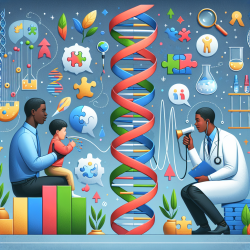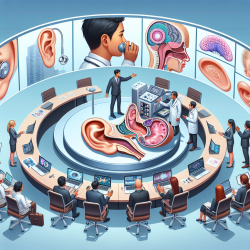Understanding the Genetic Landscape of Autism
The field of autism research has made significant strides over the past few decades, particularly in understanding the genetic underpinnings of the disorder. The research article "The Genetics of Autism" by Matson et al. (2011) provides a comprehensive overview of the genetic factors associated with autism, emphasizing the rapid advancements in genetic technology and their implications for practitioners working with children on the autism spectrum.
Key Genetic Findings
Recent developments in genetic research have identified several syndromes commonly associated with autism, including fragile X syndrome, tuberous sclerosis, 15q duplications, and untreated phenylketonuria (PKU). These findings highlight the importance of cytogenetics and linkage analysis in understanding the genetic anomalies contributing to autism.
Technological advancements such as the sequencing of the human genome and the development of cost-efficient genotyping technologies have enhanced our ability to detect chromosomal abnormalities at the molecular level. Microarray cytogenetics, for instance, allows for the study of the entire genome on a single chip, providing insights into chromosomal duplications and deletions that may contribute to autism.
Implications for Practitioners
For practitioners, understanding the genetic factors associated with autism is crucial in tailoring interventions and therapies to meet the unique needs of each child. The research underscores the importance of incorporating genetic evaluations into the diagnostic process, enabling practitioners to identify potential genetic syndromes early and adjust their therapeutic approaches accordingly.
Practitioners are encouraged to stay informed about the latest genetic research and consider genetic testing as part of their comprehensive evaluation for children with autism. This approach not only aids in diagnosis but also in developing personalized treatment plans that address the specific genetic profiles of children.
Encouraging Further Research
The genetic landscape of autism is complex and continually evolving. Practitioners are urged to engage in ongoing research and collaboration with geneticists to further unravel the genetic intricacies of autism. By participating in research studies and staying abreast of new findings, practitioners can contribute to the broader understanding of autism and improve outcomes for children.
To read the original research paper, please follow this link: The Genetics of Autism.










